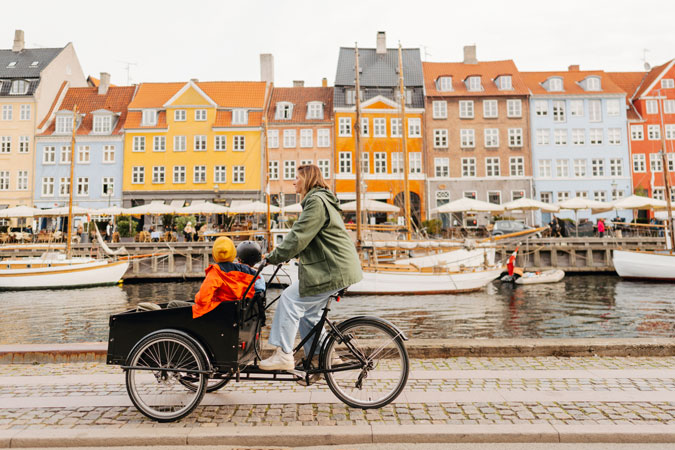Putting human rights at the heart of cancer prevention

 We’ve come across many examples of human rights being used to advance cancer prevention at the McCabe Centre – whether through public interest litigation by civil society in south Asia to introduce smoke-free public places, or through incorporating non-communicable disease (NCD) prevention and healthy diets into regional human rights strategies and reporting to UN human rights bodies in the Pacific.
We’ve come across many examples of human rights being used to advance cancer prevention at the McCabe Centre – whether through public interest litigation by civil society in south Asia to introduce smoke-free public places, or through incorporating non-communicable disease (NCD) prevention and healthy diets into regional human rights strategies and reporting to UN human rights bodies in the Pacific.
We were therefore pleased to see World Cancer Research Fund International’s recently launched Policy Blueprint recognise the co-benefits of cancer prevention and the fulfilment of human rights.
This blog aims to explain what these co-benefits are, and how those working in cancer prevention can make the most of them.
Cancer prevention is part of our human rights
The International Covenant on Economic, Social and Cultural Rights establishes that people have a right, and countries have a duty, to prevention, treatment and control of disease as part of the right to health. The Committee on Economic, Social and Cultural Rights, which is established under the Covenant to assist in its interpretation, outlines that in order to protect, promote and fulfil the right to health, countries need to regulate health-harming products and make preventive health services and health information available, accessible, acceptable and good quality. The UN Special Rapporteur on the Right to Health, an independent expert on human rights whose mandate is established under the UN Human Rights Council, has endorsed a number of cancer prevention measures as a means of fulfilling this right, most specifically in relation to front-of-pack food labelling and promoting and supporting breastfeeding.
Likewise, the Committee on the Rights of the Child states that children’s right to health in the Convention on the Rights of the Child includes government obligations to address childhood obesity. This includes limiting children’s exposure to fast foods that are high in fat, sugar and salt or energy dense and nutrient poor, and regulating their marketing and availability in schools and other public places.
Grounding prevention policies in human rights
In many countries, human rights law can provide a valuable framing for engagement with ministries outside of health. In Argentina, civil society organisations successfully advocated for front-of-pack food labelling in parliament using a campaign strongly grounded in human rights. This included emphasising consumers’ right to information on whether foods had levels of sugar, fat and sodium that would harm health, and the right to healthier food environments as a component of the rights to food and health.
In Norway, the WHO’s guideline on policies to protect children from the harmful impact of food marketing, which is aligned with obligations under the Convention on the Rights of the Child, has been important to the Ministry of Health’s recent announcement of its plans to ban the marketing of junk foods to children.
The Committee on the Rights of the Child has raised concerns about commercial marketing in digital environments, including the profiling of children’s personal data for targeted marketing and the use of manipulative advertising techniques. The Committee has made recommendations that have been incorporated into UNICEF/WHO tools to support Member States to address the marketing of unhealthy foods to children. These connections between the marketing of unhealthy foods to children and a broader range of problematic digital commercial practices provide an opportunity to connect cancer prevention challenges to broader issues of online privacy, digital surveillance, and the rights of children in online spaces, and build alliances on these issues.
Cancer places an unequal burden on already marginalised or under-served communities, who are also more exposed to many cancer risk factors. A human rights approach, with its emphasis on ensuring that no one is left behind, and community participation and accountability, is a way of making sure that we have an equitable response that respects, protects and fulfils the rights of each individual to health. In her report on food, nutrition, and the right to health, the UN Special Rapporteur, Tlaleng Mofokeng, describes how disadvantaged groups are targeted in food marketing, and calls for more attention to be given to the relationship between NCDs, racial discrimination and gender.
Challenging the co-option of human rights by unhealthy industries
Despite human rights bodies’ recommendations to prevent cancer and regulate third parties’ impact on health, commercial interests such as the tobacco, alcohol or food industries are often more adept and better resourced at using this body of law than cancer prevention advocates. Unhealthy industries often invoke rights in litigation against public health laws, as part of a trend to launch legal challenges under trade, investment and constitutional law as a means of blocking public health policy. In Mexico, food companies launched a constitutional challenge to front-of-pack food labelling, arguing that it discriminated against food companies and restricted their right to trade.
Courts consistently reject these arguments, recognising that the rights of commercial actors must be balanced against other societal interests, including the rights of people to health, and that it does not enhance rights if we leave the marketing of harmful products by powerful commercial entities unchecked. The Supreme Court of Mexico upheld the front-of-pack labelling law, finding that the labels furthered the right to health and did not present a barrier to commerce. These challenges demonstrate the importance of proactively engaging with human rights and the law as part of a broader strategy on cancer prevention, so that lawyers representing commercial entities are less able to co-opt human rights to block public health policy.
A need for strategic alliances
Human rights are ultimately allies in implementing evidence-based laws to fulfil people’s right to health, with legal principles that emphasise equity, the right of consumers to be informed, and government obligations to regulate commercial actors that may harm human rights all fitting in well with public health objectives. Recalling these principles and building strategic alliances with human rights groups means we can better realise the potential of cancer prevention policies to promote and fulfil human rights for all.
The author would like to acknowledge Hayley Jones and Clare Slattery for comments on an earlier draft of this article.

Get the latest policy news first
Sign up to receive our monthly digest of nutrition and physical activity-related policy developments


